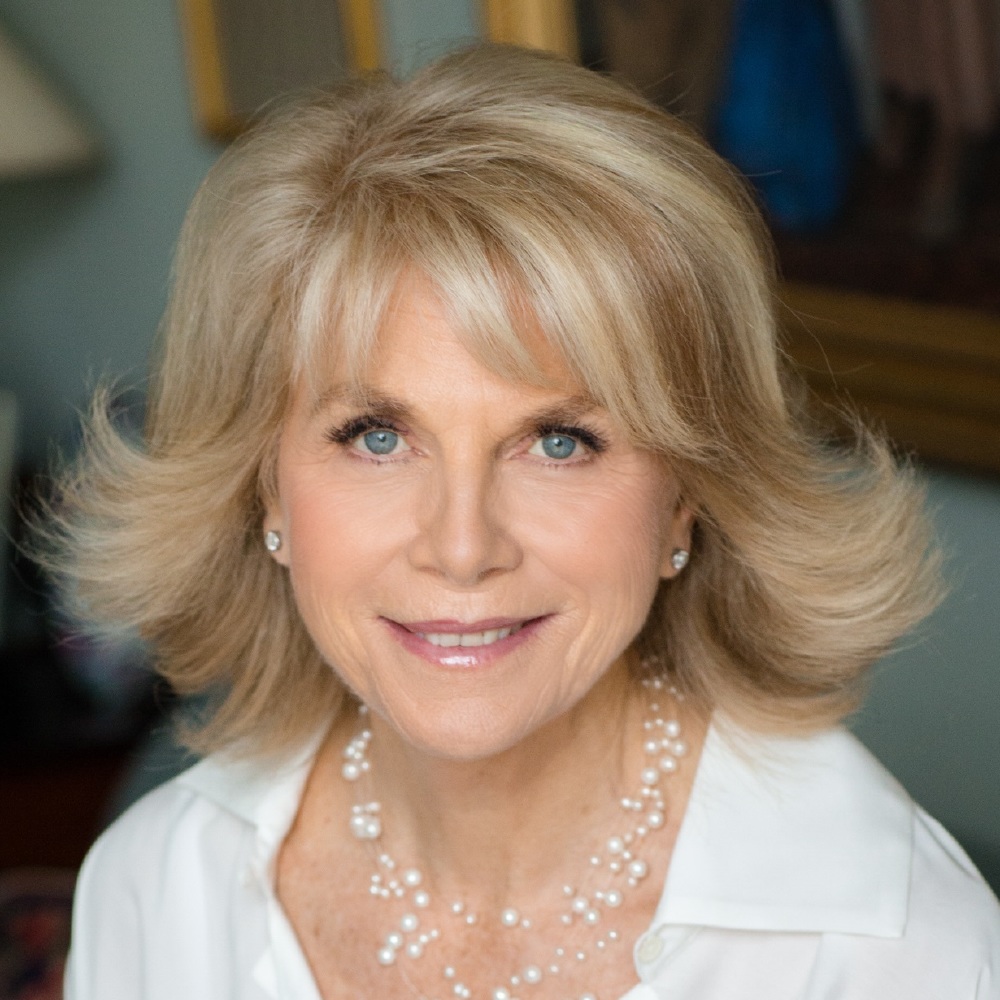‘C’est très compliqué,’ is the first thing most Parisian women said to me even before I had set foot in their homes. ‘How can you, an English woman, who did not live through the war and in any case whose country was not occupied, begin to understand what it was like for us, and the impossibility of making real choices with the Nazi boot hovering over us?’

Anne Sebba by Serena Bolton
Of course, not every meeting began so abrasively. But enough did that I learned to prepare. First, I would hand my interviewees a bunch of flowers. Amazingly, such a simple gesture really helped ease the tension. Then I would say that my aim was to explain, to an English and American audience, who were precisely those people they felt could not understand. Thirdly, I am a good listener. Usually it is in the silences that people say more than they may intend. It’s important not to interrupt, just to nod occasionally to show concern. These were, after all, harrowing stories. Sometimes there was nothing appropriate to say.
When I first agreed to write Les Parisiennes five years ago I thought there must be a new version of events if I could see the Occupation from the women’s point of view. But I didn’t actually know any elderly French women. So I asked everyone I knew with French connections for suggestions. Mostly, one meeting swiftly led to another. Once, I sat next to an art historian at a wedding and, although I had never met him before, asked him. Immediately he offered to introduce me to a cousin, the daughter of a French resister so famous that there is a street named after him in Paris. He said he believed many French now wanted to talk, that the time was right, before all the eye witnesses died. A few weeks later I met his cousin, who, like so many I was to encounter over the next few years, was half-Jewish, a fact which helped her to survive the war in the south of the country, with her Christian mother, in hiding. She was well connected and invited me to meet a famous playwright she knew. This man had, as a child, been given away to a passeur. ** (a paid helper who took children to safety usually not revealing the destination to the parents as added security) Describing that experience to me gave me one of the most memorable interviews of the whole book.
I told him I thought his mother had made an incredibly courageous choice.
“If you think my mother had any choice you have failed to understand the situation,” he retorted and started to walk out. I cajoled him back, explaining that it was a decision if not a choice. “She could have tried to hide you,” I offered. In his anger I understood the still-so-painful scars.
Some women refused to see me at all, concerned that either they had nothing, or too much to say. One whom I came to admire enormously insisted she would only see me to help with the background if I promised not to mention her name in the book as she had done nothing. I kept my word even when I discovered she was in fact one of the hundreds who engaged in what they perceived as ‘small acts,’ such as delivering propaganda pamphlets, secretly housing downed airmen and taking them to safe houses, seriously dangerous acts which cumulatively made a big difference.
I met lots of women who had been mere children during the Occupation but wanted their mother’s stories told and recognised. Above all I will never forget Arlette, whose mother Malka had saved her and her sister by persuading them to jump from a moving train. They did this then walked back to Paris and survived the war. Another woman I interviewed had endured not only the brutal all-women’s camp of Ravensbrück but the Death March from there, with her mother, eventually back to Paris. Having survived, she determined to tell school children about the need to fight for freedom and was happy therefore to share her story with me.
For months I tried to meet 92 year old Madeleine Riffaud, 19 in 1944. But she refused on the grounds that she had told her story many times, had nothing more to add and feared all I would write about was that crucial day in July 1944 when she had shot dead a German, close up, looking into his eyes. I kept pestering her until finally, last summer, she agreed. I realised then how the rest of her life has been skewed by that one day, performing an action that she believed was absolutely necessary. But she has devoted the rest of her life to fighting injustice and writing poetry. It was too late to include my interview with her in the first edition of my book, but she is in the paperback.

Les Parisiennes: How the women of Paris Lived, Loved and Died in the 1940s by Anne Sebba (W&N) is out now in paperback
Anne Sebba read History at King's College London then joined Reuters as a foreign correspondent based in London and Rome. She has written eight works of non-fiction, mostly about iconic women, presented BBC radio documentaries, and is an accredited NADFAS (National Association of Decorative & Fine Arts Societies) lecturer. Her biography of Wallis Simpson, Duchess of Windsor, THAT WOMAN, was a Sunday Times bestseller.

